1. The Megalodon Was the Largest Shark to Ever Exist
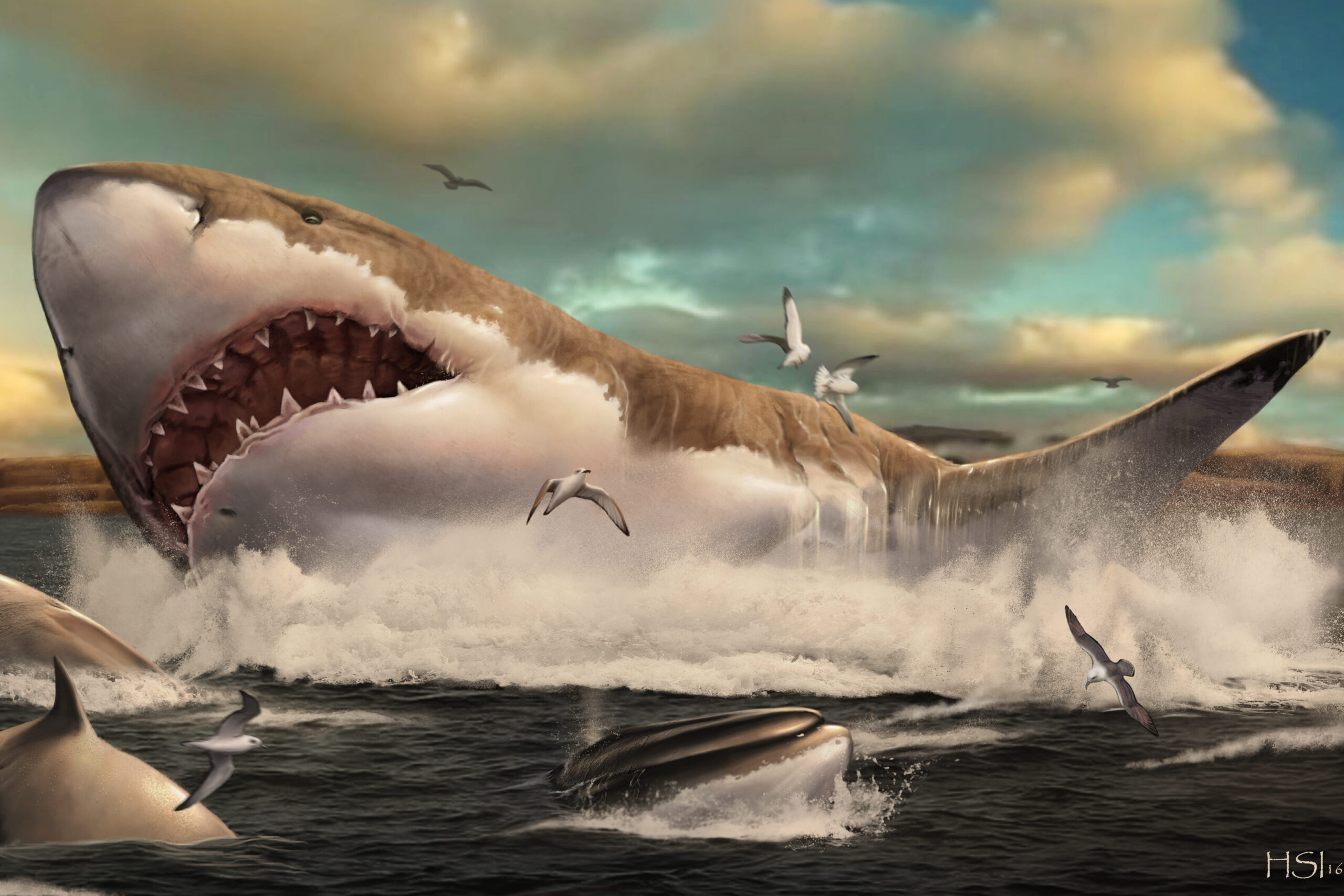
If you think great white sharks are big, wait until you hear about The Megalodon. This prehistoric beast was the largest shark to ever roam the oceans, growing up to 60 feet long—that’s three times the size of a great white! With teeth the size of a human hand and a bite force more powerful than a T. rex, the megalodon was the ultimate ocean predator. It ruled the seas for millions of years before going extinct around 3.6 million years ago.
No one knows exactly why the megalodon disappeared, but many scientists believe climate change and competition with smaller, faster predators played a role. Some conspiracy theories claim the megalodon is still lurking in the deep, but there’s no scientific evidence to support that. Still, it’s fun to imagine a giant shark roaming the unexplored parts of the ocean. While the megalodon may be gone, sharks today are still carrying on its legacy as the ocean’s top predators!
2. The Greenland Shark Can Live Over 500 Years
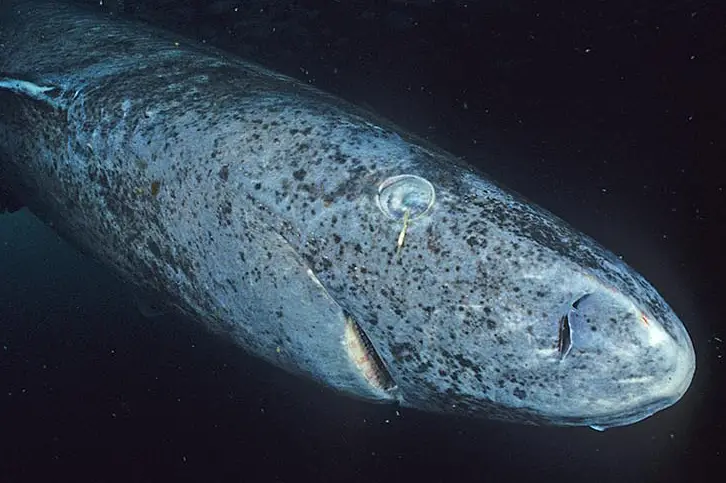
If there’s one shark that’s seen it all, it’s the Greenland shark. This slow-moving giant holds the record for the longest-living vertebrate on Earth—some individuals have been estimated to be over 500 years old! That means some of these sharks were already swimming in the Arctic waters before Shakespeare was even born. They grow incredibly slowly, about one centimeter per year, which is probably why they live for so long.
Greenland sharks spend most of their lives deep in the freezing waters of the North Atlantic and Arctic Oceans, moving at a sluggish pace. Because they live in such cold environments, their metabolism is extremely slow, which likely contributes to their longevity. But get this—their flesh is actually toxic to humans unless properly prepared. So, even if one of these ancient sharks could tell us stories from centuries past, we definitely wouldn’t want to invite it to dinner!
3. Some Sharks Can Walk on Land (Sort Of!)
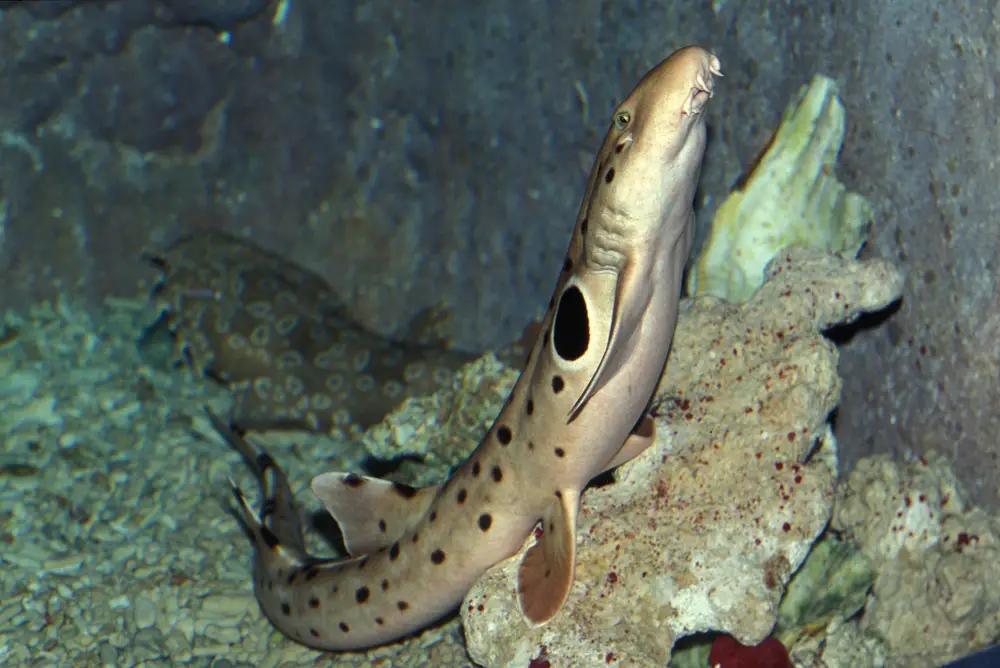
Picture this: You’re strolling along the beach, and suddenly, you see a shark… walking? Sounds like something out of a sci-fi movie, right? Well, it’s actually real! The Epaulette Shark, found in Australia and New Guinea, has an incredible ability—it can “walk” on land using its fins. This small but mighty shark can move across coral reefs and even survive out of water for short periods.
How does it pull off this trick? The epaulette shark has adapted to low-oxygen environments, meaning it can slow its heart rate and conserve energy while searching for food in shallow waters. When the tide goes out and traps them in tide pools, they don’t panic like other fish—they just stroll their way back to safety. So, next time someone says, “sharks can’t walk,” you’ve got a jaw-dropping fact to prove them wrong!
4. Sharks Have a Sixth Sense (And It’s Freaky Good)
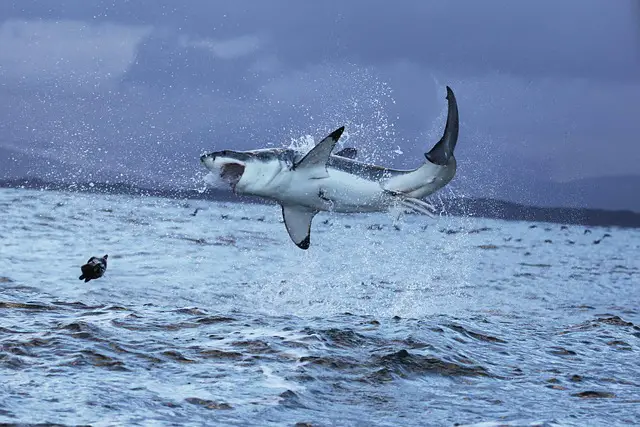
Forget Spider-Man—sharks are the real superheroes when it comes to sensing danger. They have an extra sense called electroreception, which allows them to detect the electric fields given off by other animals. This incredible ability helps them find prey even in complete darkness or buried under the sand. The secret lies in tiny jelly-filled pores called the ampullae of Lorenzini, which are scattered around their snouts.
With this superpower, sharks can pick up even the faintest electrical signals, like a fish’s heartbeat or the muscle movements of a struggling animal. That’s why they’re such effective hunters—they don’t need to see or hear you to know you’re there. Some species, like hammerhead sharks, have an even stronger electroreception ability, making them expert hunters of hidden prey. Basically, if you’re in the water, a shark can “feel” you long before it sees you!
5. Sharks Have Been Around Longer Than Trees
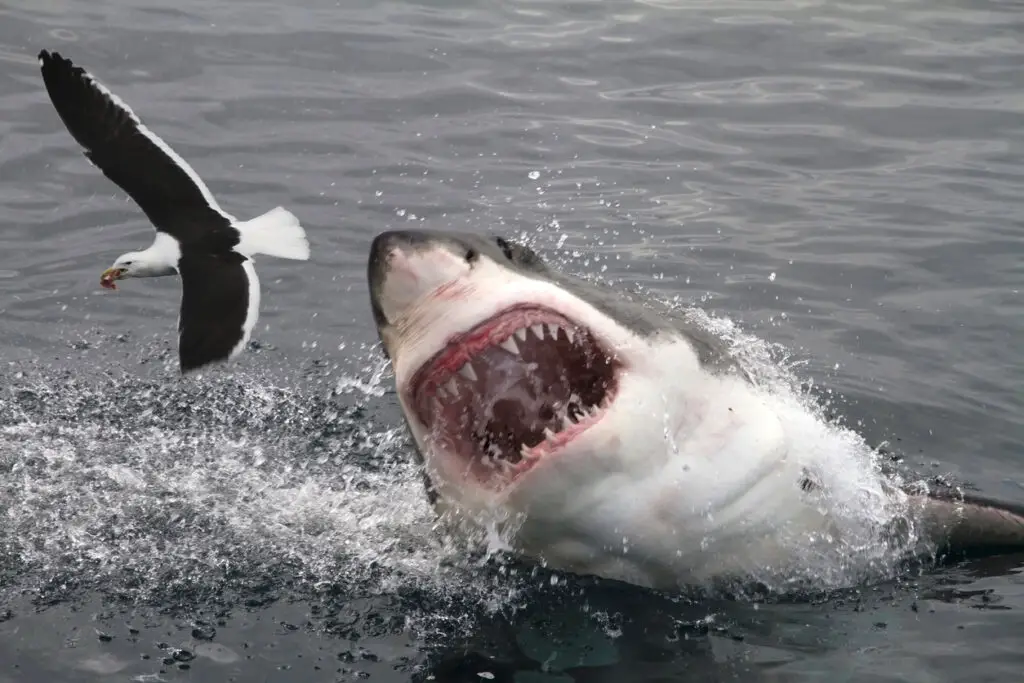
Yes, you read that right—sharks are older than trees. These ancient predators have been ruling the oceans for over 400 million years, while the first trees only appeared around 350 million years ago. That means sharks have survived multiple mass extinctions, including the one that wiped out the dinosaurs! They’ve outlived ice ages, asteroid impacts, and dramatic shifts in ocean chemistry.
What’s their secret? Evolution has fine-tuned sharks into some of the most efficient predators on the planet. Unlike most animals, their skeletons are made of cartilage instead of bone, making them more flexible and better suited for survival. Plus, their ability to constantly grow new teeth ensures they’re always ready for their next meal. So, next time someone calls sharks “prehistoric,” they’re absolutely right—these creatures are living fossils with a legacy that stretches back hundreds of millions of years.
6. Sharks Can Heal Themselves—Fast!
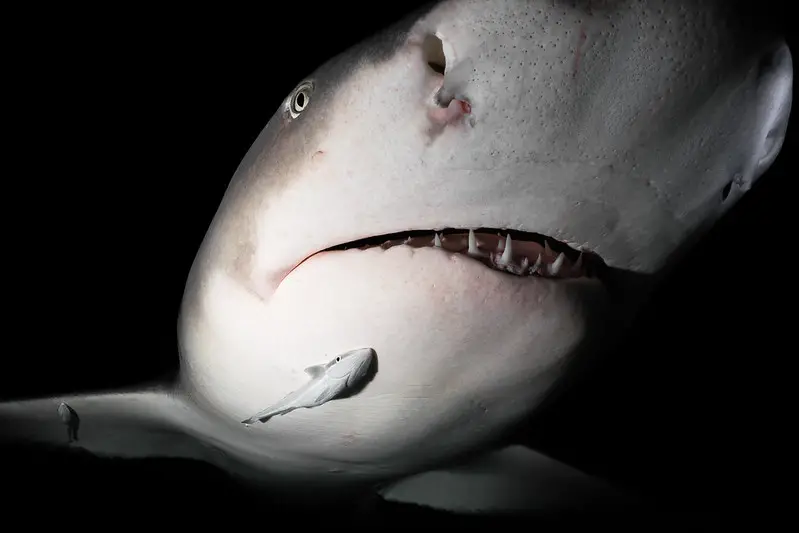
Imagine if humans could regrow limbs or instantly heal wounds. Sounds like a superpower, right? Well, sharks kind of have it! These amazing creatures have the ability to heal from injuries at an astonishing rate. Even deep cuts and bites from other sharks don’t slow them down for long. Scientists believe this is because sharks have unique skin cells that promote rapid healing and reduce the risk of infection.
But it gets even crazier—some species can even regrow damaged fins! This incredible ability helps them survive encounters with predators, battles over territory, or accidental injuries. Researchers are studying sharks’ wound-healing powers to see if they can apply the same principles to human medicine. So, not only are sharks nature’s perfect hunters, but they might also hold the key to advanced medical breakthroughs!
Click here for more stories like this
7. Sharks Rarely Get Cancer—And Scientists Want to Know Why
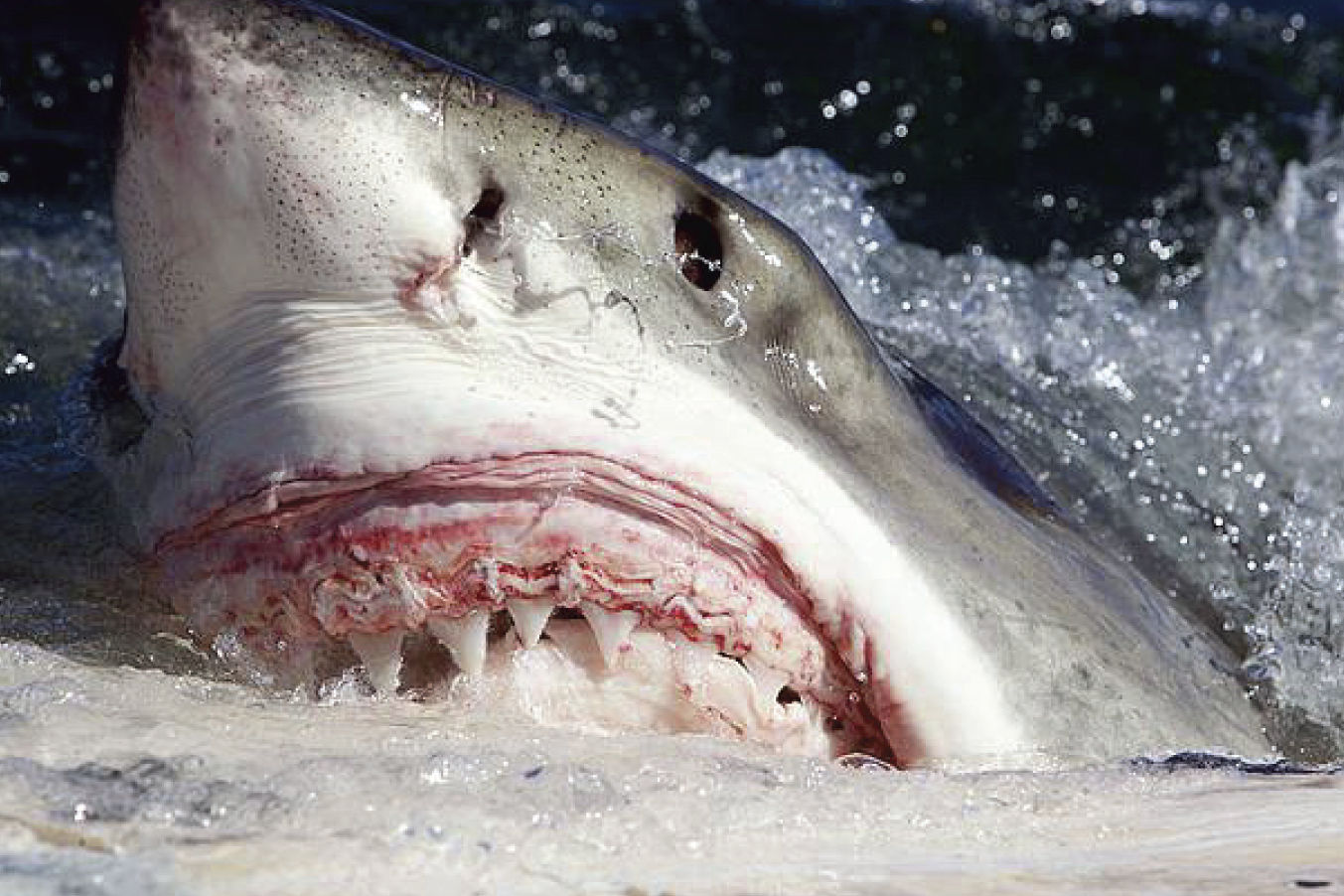
For years, there’s been a widespread myth that sharks never get cancer. While that’s not entirely true, they do have an incredibly low cancer rate compared to other animals. Scientists believe this is due to a special compound found in their cartilage that may help prevent tumor growth. This discovery has sparked interest in medical research, with hopes of uncovering new treatments for cancer in humans.
Shark cartilage has been studied for potential anti-cancer properties, but the research is still ongoing. While there’s no magical cure hidden in shark biology (yet), their unique immune system is undeniably fascinating. Some researchers believe their ability to rapidly heal wounds and resist infections may also play a role in keeping them cancer-free. It’s just another way sharks continue to defy the odds and survive in the most extreme conditions!
8. Great White Sharks Are Surprisingly Smart (And Curious!)
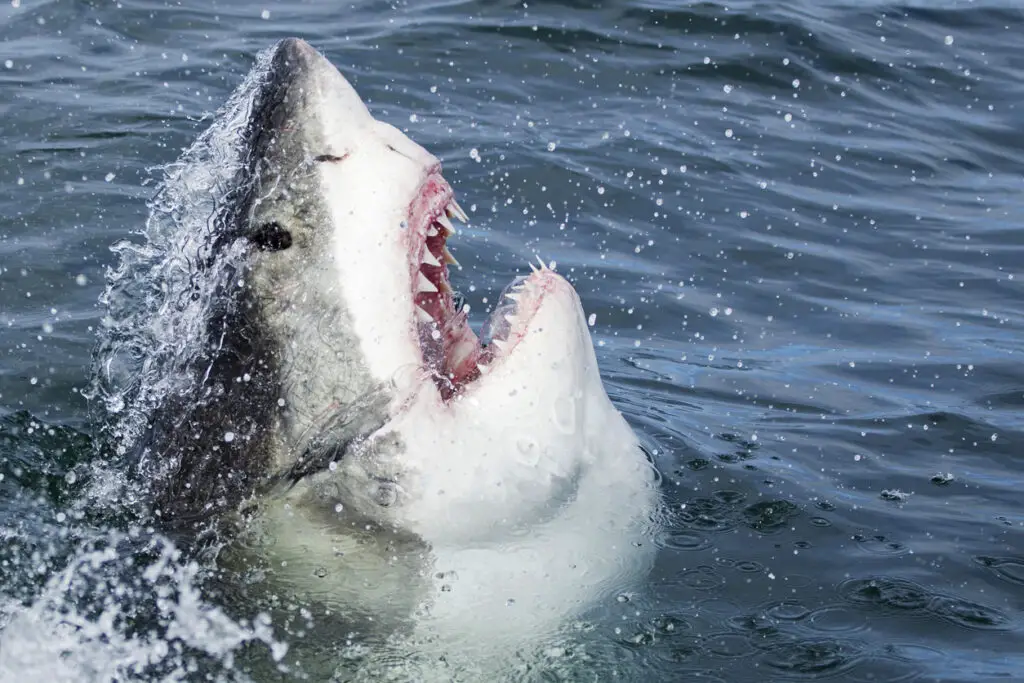
When most people think of great white sharks, they imagine a mindless eating machine. But in reality, great whites are highly intelligent and surprisingly curious creatures. They use problem-solving skills, have complex social interactions, and even show signs of learning from experience. Researchers have observed them carefully investigating new objects in their environment—sometimes even “testing” things with gentle bites to figure out what they are.
Some studies suggest that great whites have distinct personalities, with some being more cautious and others more bold. They also exhibit strategic hunting techniques, such as ambushing prey from below or working together to herd fish. This level of intelligence helps them survive in a constantly changing ocean environment. So, while they might look terrifying, great whites are more than just brute-force predators—they’re oceanic masterminds!
9. Some Sharks Never Stop Swimming (Or They’ll Suffocate!)
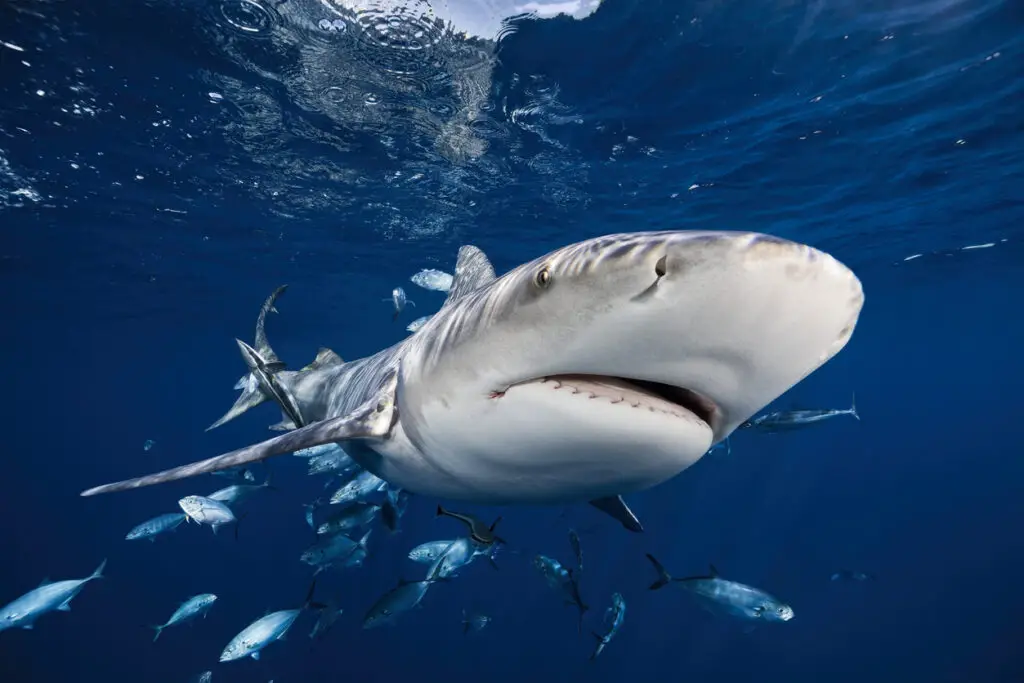
You’ve probably heard the saying, “If a shark stops swimming, it dies.” Well, for some species, that’s absolutely true! Sharks like the great white, mako, and hammerhead rely on a process called ram ventilation, meaning they need to keep moving to force oxygen-rich water over their gills. Without constant movement, they wouldn’t be able to breathe and would eventually suffocate.
But don’t worry—not all sharks have this problem! Some species, like nurse sharks and wobbegongs, can pump water over their gills while resting on the ocean floor. This allows them to stay still for long periods without suffocating. So, while some sharks are always on the move, others can take it easy and lounge around. The ocean is full of surprises, and sharks have evolved in different ways to survive their unique environments!
10. Some Sharks Can Glow in the Dark
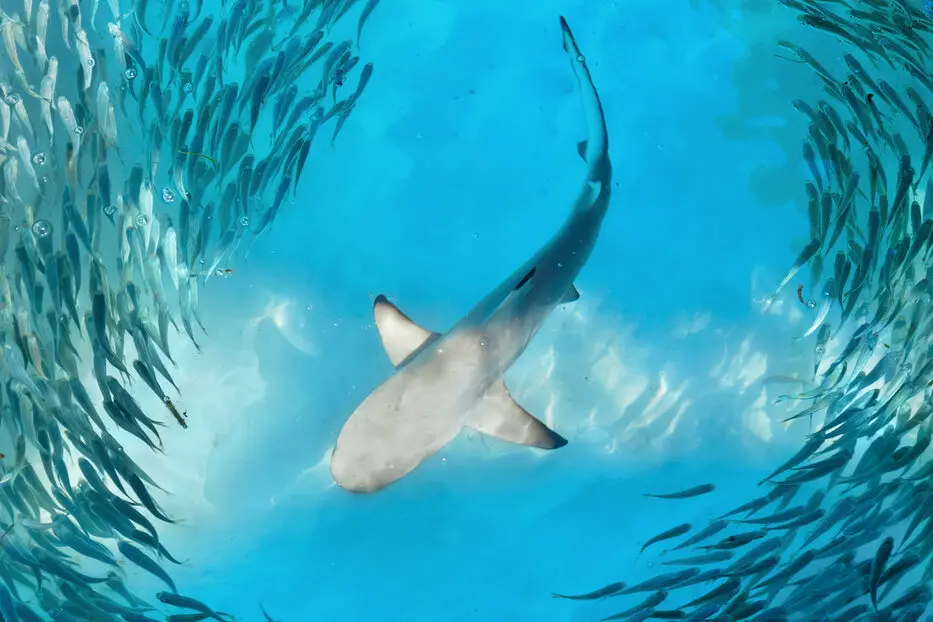
Move over, fireflies—sharks are out here glowing like deep-sea disco balls! Scientists have discovered that certain shark species, like the swell shark and the chain catshark, can produce a greenish-blue glow in the dark. This isn’t just for fun; it actually helps them communicate and camouflage in the deep sea. The glow is caused by biofluorescence, a process where sharks absorb blue light from the ocean and re-emit it as a different color.
But here’s the coolest part—humans can’t see this glow without special equipment! To us, these sharks look pretty normal, but to other sea creatures, they’re lighting up like neon signs. This glowing ability might help sharks recognize each other, attract mates, or even warn predators to back off. Imagine swimming in the ocean and suddenly realizing the shark next to you is glowing. That’s next-level underwater magic!


